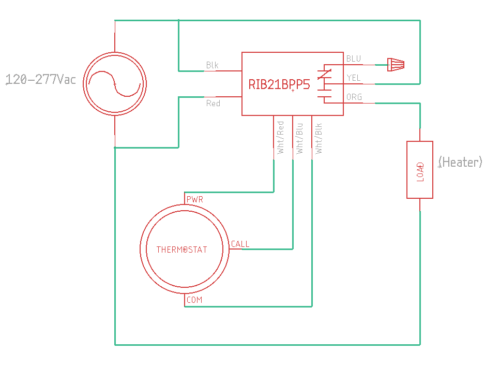Wiring a Thermostat with a Power Pack
On this week’s Tech Tuesday, we’ll go over the simple wiring of using a power pack with a thermostat. While wiring up a thermostat isn’t exactly difficult, using a power pack in place of a transformer can definitely make it easier. That’s not even counting the potential time and money saved though using one.
When most people think of power packs, they think of lighting applications. The power pack combination of a Switch Mode Power Supply (SMPS), a relay, and a dry contact input trigger work great for turning on lights controlled by occupancy or vacancy sensors. The power packs not only receive an on/off signal from the sensor, but power the sensor as well. This same concept can be applied to thermostats in the realm of HVAC and building automation.
Instead of powering up an occupancy or vacancy sensor, a power pack can be used to power a thermostat directly, eliminating the need for a step-down transformer. On top of that, the call terminal on a thermostat can be connected to the control input of the power pack, making the power pack automatically control your heater or other HVAC load.
Wiring diagram using our RIB21BPP5:

In addition to this, if more than one call is needed for different loads, the RIB21BPP5 can power more relays such as the RIBU1C or RIB2401B, up to 5 Watts. Just connect the relay coil to its corresponding call on the thermostat. If more power is needed, we also have the RIB21BPP10 that can supply a full 10W. And of course, if you have any other questions on this topic, be sure to call or email us at Tech Support.
